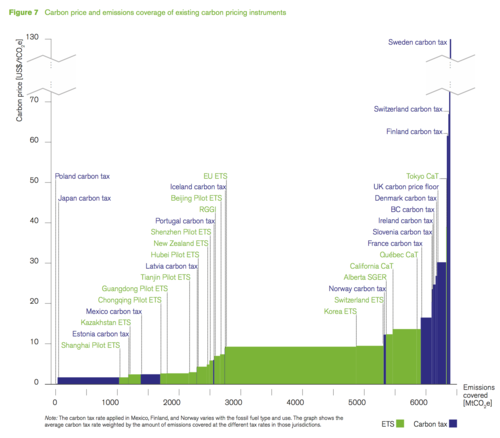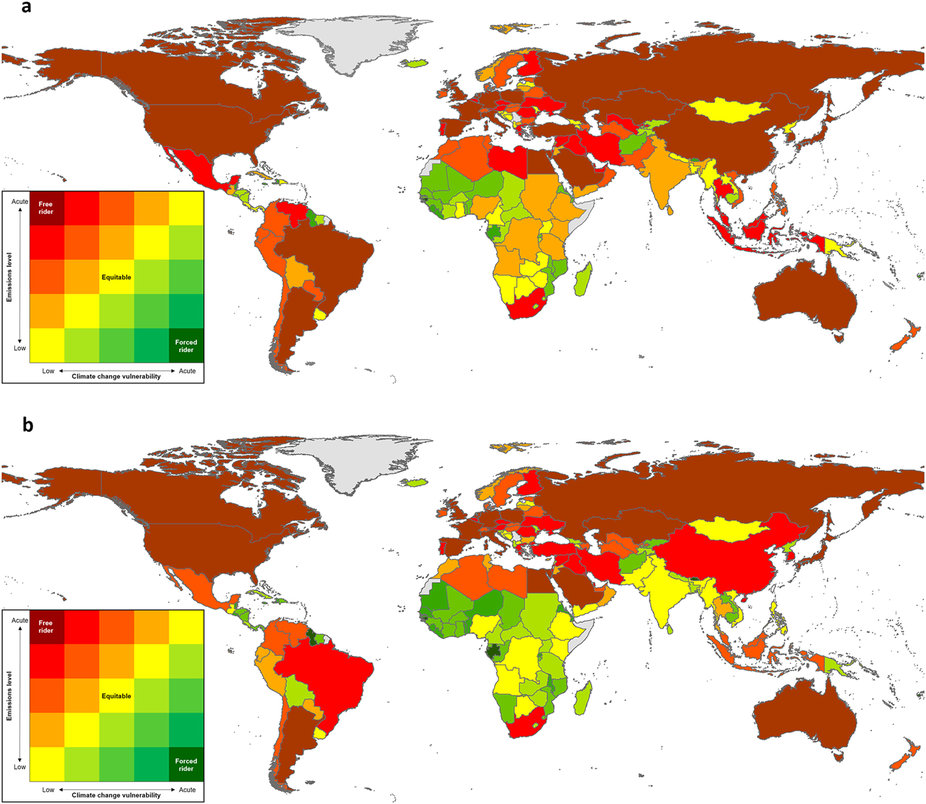Ed Wiebe
at the UVic Climate Lab
Tom Fletcher Comments on Trump and a Canadian Carbon Tax and Gets it Wrong
Tom Fletcher is wrong about climate change: Volume 10
written by me, twitter-->@edwiebe, 2016-11-26
My Tom Fletcher is wrong about climate change index page.
My main Tom Fletcher is wrong about climate change page.
In Tom Fletcher's latest paen to the undereducated audience (who would never let that get in the way of an opinion) he writes about how much he misunderstands carbon taxes, the twenty-second session of the Conference of the Parties (COP 22) meeting to work on reducing emissions of greenhouse gases globally, is sarcastic about perceived hypocrisy, mistakenly calls himself skeptical. Here's a link to an archive of the commentary.
Fletcher: B.C. was recognized for its revenue neutral $30-a-tonne carbon tax, still the only substantial tax on carbon fuel consumption in North America.
This is a quibble about the word substantial. There are other jurisdictions in North America that charge for using carbon and as Fletcher points out the federal government has said it will require provinces to charge for carbon according to formula starting in 2018. Provinces are able to design their own strategy or accept one from the federal government. There's a good summary of carbon taxes (fees, charges, etc) in a World Bank report from 2015. This would have been easy for Tom Fletcher to check. But that would have required mentioning a source and since what he writes in these personal essays is merely opinion he doesn't feel obliged to use sources for what he writes. For all we know he just makes it up. See the figure below for a comparison of carbon taxes around the world.
Next we see Tom Fletcher allude sarcastically to the travel and accommodation of so many people for COP22. This is a fair criticism but it has already been addressed by many others. In brief, one can work toward undermining or eliminating the status quo while enmeshed within the system. Thi is, after all, a global enterprise. There are not many other programmes in the world today that have such strong collective international agreement. What Fletcher doesn't mention (but see below) is the effort that is made at these meetings to minimize the impact of holding the meeting. I'm not an expert on organizing the meetings of people from 190 countries but I'm not sure how, given the reality of the present, we can have a meeting like this without people having to travel. It's not hypocrisy to use the tools we have to try to change or even eliminate the tools we have. That's really just good sense. There's really very little that has managed to get such cooperative agreement among world affairs. It's actually good news that climate change is so well accepted by the vast majority of governments on Earth.
Trump comes up next but it's a throwaway comment so presumanbly the headline writer was trying to take advantage of the newsworthiness of the name.
Fletcher: With no restrictions on rapidly growing China and India until 2030, and withdrawal of the U.S., the world’s second largest emitter after China, other countries face an impossible burden.
This is a very interesting comment and needs to be clarified a bit. Firstly and tying nicely into Tom Fletcher's mistaken understanding of carbon prices in North America the World Bank report (linked above) says:
China and the United States are the two countries with the largest volume of emissions covered by carbon pricing instruments.
Secondly, we know that the USA and China have already entered into an agreement to cooperate on limiting the effects of climate change and to work together on clean energy technology. Note that Tom Fletcher is wrong. China has agreed to bring it's emissions to a peak in 2030. This requires them to work to modify their energy systems in the period before that which is certainly a restriction they have accepted.
In addition, the problem of global equity of carbon emissions under any scheme to reduce the emissions to zero (where they have to go) is well-studied by many research groups in a variety of fields. Examples: Google Scholar search on "policy carbon emissions equity". Some points to ponder: Global response to carbon emissions depends on historical emissions as well as future emissions. Research on how to divide up historical contributions to climate change is being undertaken (e.g. National contributions to observed global warming. Any arrangement that provides for some kind of global equity in future emissions has to take that dispararity into account. Future harm from carbon emissions will vary from place to place. The worst harms are likely to occur in places where that are not the source of most of the emissions.
This paper from 2011 discusses geographic disparities and moral hazards in predicted impacts of climate change on human populations.
Results: Strongly negative impacts of climate change are predicted in Central America, central South America, the Arabian Peninsula, Southeast Asia and much of Africa. Importantly, the regions of greatest vulnerability are generally distant from the high-latitude regions where the magnitude of climate change will be greatest. Furthermore, populations contributing the most to greenhouse gas emissions on a per capita basis are unlikely to experience the worst impacts of climate change, satisfying the conditions for a moral hazard in climate change policies.
The Globe and Mail reported on reaction to the IPCC Fifth Assessment report in 2013 [archive]. This included some discussion of impacts for Canada.
Fletcher: [F]ederal Environment Minister Catherine McKenna said Canada will stay the course. Trudeau has given provinces a 2018 deadline to impose their own carbon price, starting at $10 a tonne and rising by $10 each year, or Ottawa will do it for them. By 2021, this would see the rest of Canada catch up to B.C. How’s that working here? After a dip in emissions mostly caused by a world recession, B.C.’s greenhouse gas emissions are rising along with its growing economy.
Energy Policy, 86, November 2015, Pages 674–683
Tom Fletcher gets this opportunity (for reasons that remain elusive) to write whatever he wants without references. So, here's a reference: British Columbia’s revenue-neutral carbon tax: A review of the latest “grand experiment” in environmental policy.
Empirical and simulation models suggest that the tax has reduced emissions in the province by between 5% and 15% since being implemented. At the same time, models show that the tax has had negligible effects on the aggregate economy.
Here's another: Carbon tax and revenue recycling: Impacts on households in British Columbia
we find that the existing BC carbon tax is highly progressive even prior to consideration of the revenue recycling scheme, such that the negative impact of the carbon tax on households with below-median income is smaller than that on households with above-median income. We show that our finding is a result of welfare effects of a carbon tax being determined primarily by the source of a households’ income rather than by the destination of its expenditures. Finally, we show that the existing revenue recycling scheme is also progressive. Overall, the tax appears to be highly progressive.
Resource and Energy Economics, 41, August 2015, Pages 40–69.
Finally, other opinion-ators out there can be more thoughtful than Tom Fletcher .

